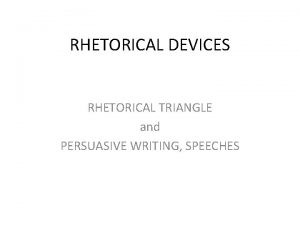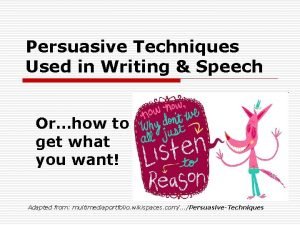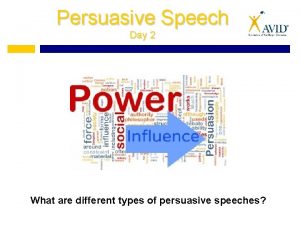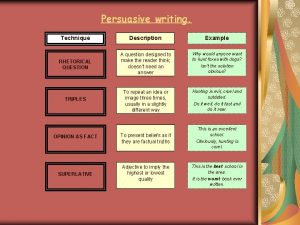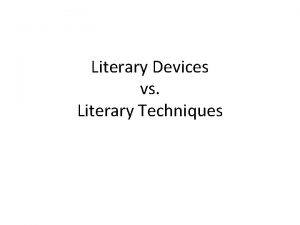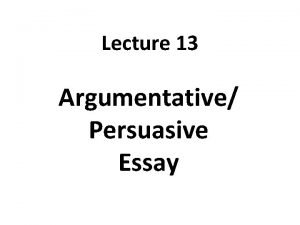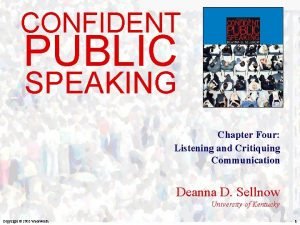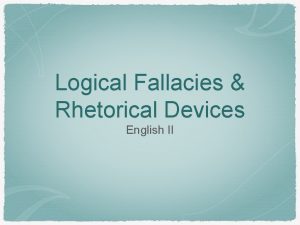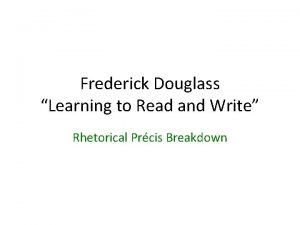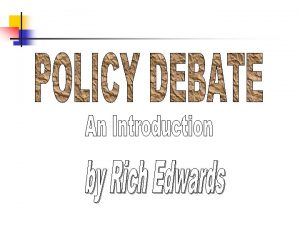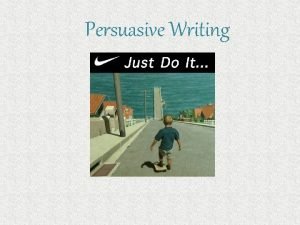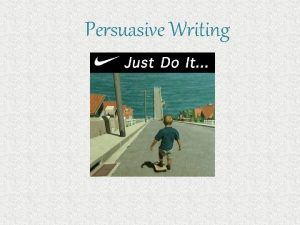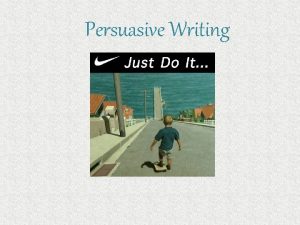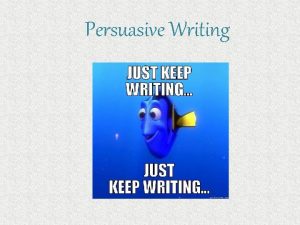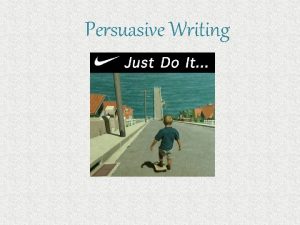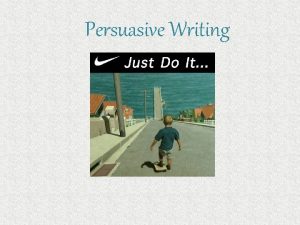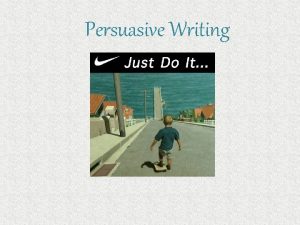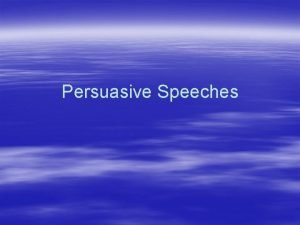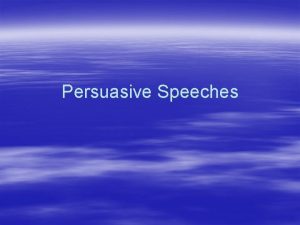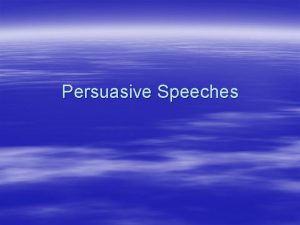RHETORICAL DEVICES RHETORICAL TRIANGLE and PERSUASIVE WRITING SPEECHES













- Slides: 13

RHETORICAL DEVICES RHETORICAL TRIANGLE and PERSUASIVE WRITING, SPEECHES

THE RHETORICAL TRIANGLE ETHOS Establishing credibility • • PATHOS Appealing to emotion LOGOS Appealing to logic • Using description and concrete language • Using figurative language (metaphors, similes, analogies) • Shaping your appeal to your audience • Emotional fallacies: bandwagon appeal, flattery, incrowd appeal, veiled threats, false analogies, weasel words Demonstrating knowledge Establishing common ground Demonstrating fairness Ethical fallacies: ad hominem, guilt by association • Providing examples and precedents • Citing authority and testimony • Establishing causes and effects • Using inductive and deductive reasoning • Logical fallacies: begging the question, post hoc fallacy, non sequitur, either -or, hasty generalization, oversimplification

The Reader’s Rhetorical Triangle Logos • Note the claims the author makes, the exigence. • Note the data the author provides in support of the claims. • Note the conclusions the author draws. Ethos • Note how the author establishes a persona • Note how the author establishes credibility • Note any revelation of the author’s credentials or personal history Pathos • Note the primary audience for the text • Note the emotional appeals the author makes • Note the author’s expectations of the audience

“Speech is power: speech is to persuade, to convert, to compel. ” --Ralph Waldo Emerson Speech = nonfiction work; delivered orally to audience Types of speeches: countless settings & purposes for speeches Common Types of Speeches: • Political Speech-government • Address-special occasion (dedication/inauguration) • Sermon (religious instruction)

Rhetorical Devices • Restatement: expressing the same idea using different words Abraham Lincoln: “. . . we can not dedicate —we can not consecrate---we can not hallow--this ground. ”

Rhetorical Devices • Anaphora: repetition of the same word or group of words at the beginning of successive sentences, clauses, or phrases Winston Churchill: “We shall go on to the end, we shall fight in France, we shall fight on the seas and oceans. . . ”

Rhetorical Devices • Rhetorical Questions: questions asked for effect rather than answers Benjamin Franklin: “From such an assembly can a perfect production be expected? ”

Rhetorical Devices • Repetition: restating an idea using the same words “The war is inevitable—and let it come! I repeat it, sir, let it come!” Patrick Henry

Rhetorical Devices • Parallelism: repeating a grammatical structure “With malice toward none; with charity for all. . . ” Abraham Lincoln

Rhetorical Devices • Antithesis: juxtaposition of strongly contrasting words, images, or ideas “. . . ask not what your country can do for you—ask what you can do for your country. ” John F. Kennedy

Rhetorical Devices • Exclamation: an emotional statement, often indicated in texts by an exclamation mark “. . . as for me, give me liberty or give me death!” Patrick Henry

Persuasion: Argument Persuasion = writing that presents an argument; message meant to persuade readers to think/act in a certain way • Appeals to emotion (influence readers’ feelings) • Appeals to logic (show readers that argument is well reasoned)

Persuasion (con’t. ) • Appeals to ethics (shows readers that argument is just/fair) • Appeals to authority (shows readers that a higher power supports the ideas)
 Using strongly contrasting words, images, or ideas
Using strongly contrasting words, images, or ideas Speech persuasive techniques
Speech persuasive techniques Persuasive techniques used in speeches
Persuasive techniques used in speeches What are the 3 types of persuasive speeches
What are the 3 types of persuasive speeches Rhetorical question for persuasive writing
Rhetorical question for persuasive writing What are the poetic devices
What are the poetic devices Argumentative writing and persuasive writing
Argumentative writing and persuasive writing Argumentative essay vs expository essay
Argumentative essay vs expository essay Famous speeches with ethos pathos and logos
Famous speeches with ethos pathos and logos Listening to and critiquing public speeches
Listening to and critiquing public speeches Logical fallacies and rhetorical devices
Logical fallacies and rhetorical devices Learning to read and write frederick douglass
Learning to read and write frederick douglass Structure of twelfth night
Structure of twelfth night Structure of a debate
Structure of a debate
